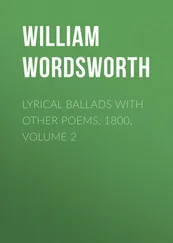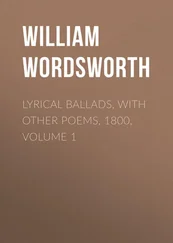Samuel Coleridge - Lyrical Ballads, With a Few Other Poems (1798)
Здесь есть возможность читать онлайн «Samuel Coleridge - Lyrical Ballads, With a Few Other Poems (1798)» весь текст электронной книги совершенно бесплатно (целиком полную версию без сокращений). В некоторых случаях можно слушать аудио, скачать через торрент в формате fb2 и присутствует краткое содержание. Год выпуска: 2005, Жанр: Поэзия, на английском языке. Описание произведения, (предисловие) а так же отзывы посетителей доступны на портале библиотеки ЛибКат.
- Название:Lyrical Ballads, With a Few Other Poems (1798)
- Автор:
- Жанр:
- Год:2005
- ISBN:нет данных
- Рейтинг книги:5 / 5. Голосов: 1
-
Избранное:Добавить в избранное
- Отзывы:
-
Ваша оценка:
- 100
- 1
- 2
- 3
- 4
- 5
Lyrical Ballads, With a Few Other Poems (1798): краткое содержание, описание и аннотация
Предлагаем к чтению аннотацию, описание, краткое содержание или предисловие (зависит от того, что написал сам автор книги «Lyrical Ballads, With a Few Other Poems (1798)»). Если вы не нашли необходимую информацию о книге — напишите в комментариях, мы постараемся отыскать её.
Lyrical Ballads, With a Few Other Poems (1798) — читать онлайн бесплатно полную книгу (весь текст) целиком
Ниже представлен текст книги, разбитый по страницам. Система сохранения места последней прочитанной страницы, позволяет с удобством читать онлайн бесплатно книгу «Lyrical Ballads, With a Few Other Poems (1798)», без необходимости каждый раз заново искать на чём Вы остановились. Поставьте закладку, и сможете в любой момент перейти на страницу, на которой закончили чтение.
Интервал:
Закладка:
A most gentle maid
Who dwelleth in her hospitable home
Hard by the Castle, and at latest eve,
(Even like a Lady vow'd and dedicate
To something more than nature in the grove)
Glides thro' the pathways; she knows all their notes,
That gentle Maid! and oft, a moment's space,
What time the moon was lost behind a cloud,
Hath heard a pause of silence: till the Moon
Emerging, hath awaken'd earth and sky
With one sensation, and those wakeful Birds
Have all burst forth in choral minstrelsy,
As if one quick and sudden Gale had swept
An hundred airy harps! And she hath watch'd
Many a Nightingale perch giddily
On blosmy twig still swinging from the breeze,
And to that motion tune his wanton song,
Like tipsy Joy that reels with tossing head.
Farewell, O Warbler! till to-morrow eve,
And you, my friends! farewell, a short farewell!
We have been loitering long and pleasantly,
And now for our dear homes.—That strain again!
Full fain it would delay me!—My dear Babe,
Who, capable of no articulate sound,
Mars all things with his imitative lisp,
How he would place his hand beside his ear,
His little hand, the small forefinger up,
And bid us listen! And I deem it wise
To make him Nature's playmate. He knows well
The evening star: and once when he awoke
In most distressful mood (some inward pain
Had made up that strange thing, an infant's dream)
I hurried with him to our orchard plot,
And he beholds the moon, and hush'd at once
Suspends his sobs, and laughs most silently,
While his fair eyes that swam with undropt tears
Did glitter in the yellow moon-beam! Well—
It is a father's tale. But if that Heaven
Should give me life, his childhood shall grow up
Familiar with these songs, that with the night
He may associate Joy! Once more farewell,
Sweet Nightingale! once more, my friends! farewell.
THE FEMALE VAGRANT.
By Derwent's side my Father's cottage stood,
(The Woman thus her artless story told)
One field, a flock, and what the neighbouring flood
Supplied, to him were more than mines of gold.
Light was my sleep; my days in transport roll'd:
With thoughtless joy I stretch'd along the shore
My father's nets, or watched, when from the fold
High o'er the cliffs I led my fleecy store,
A dizzy depth below! his boat and twinkling oar.
My father was a good and pious man,
An honest man by honest parents bred,
And I believe that, soon as I began
To lisp, he made me kneel beside my bed,
And in his hearing there my prayers I said:
And afterwards, by my good father taught,
I read, and loved the books in which I read;
For books in every neighbouring house I sought,
And nothing to my mind a sweeter pleasure brought.
Can I forget what charms did once adorn
My garden, stored with pease, and mint, and thyme,
And rose and lilly for the sabbath morn?
The sabbath bells, and their delightful chime;
The gambols and wild freaks at shearing time;
My hen's rich nest through long grass scarce espied;
The cowslip-gathering at May's dewy prime;
The swans, that, when I sought the water-side,
From far to meet me came, spreading their snowy pride.
The staff I yet remember which upbore
The bending body of my active sire;
His seat beneath the honeyed sycamore
When the bees hummed, and chair by winter fire;
When market-morning came, the neat attire
With which, though bent on haste, myself I deck'd;
My watchful dog, whose starts of furious ire,
When stranger passed, so often I have check'd;
The red-breast known for years, which at my casement peck'd.
The suns of twenty summers danced along,—
Ah! little marked, how fast they rolled away:
Then rose a mansion proud our woods among,
And cottage after cottage owned its sway,
No joy to see a neighbouring house, or stray
Through pastures not his own, the master took;
My Father dared his greedy wish gainsay;
He loved his old hereditary nook,
And ill could I the thought of such sad parting brook.
But, when he had refused the proffered gold,
To cruel injuries he became a prey,
Sore traversed in whate'er he bought and sold:
His troubles grew upon him day by day,
Till all his substance fell into decay.
His little range of water was denied; [2] Several of the Lakes in the north of England are let out to different Fishermen, in parcels marked out by imaginary lines drawn from rock to rock.
All but the bed where his old body lay,
All, all was seized, and weeping, side by side,
We sought a home where we uninjured might abide.
Can I forget that miserable hour,
When from the last hill-top, my sire surveyed,
Peering above the trees, the steeple tower,
That on his marriage-day sweet music made?
Till then he hoped his bones might there be laid,
Close by my mother in their native bowers:
Bidding me trust in God, he stood and prayed,—
I could not pray:—through tears that fell in showers,
Glimmer'd our dear-loved home, alas! no longer ours!
There was a youth whom I had loved so long,
That when I loved him not I cannot say.
'Mid the green mountains many and many a song
We two had sung, like little birds in May.
When we began to tire of childish play
We seemed still more and more to prize each other:
We talked of marriage and our marriage day;
And I in truth did love him like a brother,
For never could I hope to meet with such another.
His father said, that to a distant town
He must repair, to ply the artist's trade.
What tears of bitter grief till then unknown!
What tender vows our last sad kiss delayed!
To him we turned:—we had no other aid.
Like one revived, upon his neck I wept,
And her whom he had loved in joy, he said
He well could love in grief: his faith he kept;
And in a quiet home once more my father slept.
Four years each day with daily bread was blest,
By constant toil and constant prayer supplied.
Three lovely infants lay upon my breast;
And often, viewing their sweet smiles, I sighed,
And knew not why. My happy father died
When sad distress reduced the children's meal:
Thrice happy! that from him the grave did hide
The empty loom, cold hearth, and silent wheel,
And tears that flowed for ills which patience could not heal.
'Twas a hard change, an evil time was come;
We had no hope, and no relief could gain.
But soon, with proud parade, the noisy drum
Beat round, to sweep the streets of want and pain.
My husband's arms now only served to strain
Me and his children hungering in his view:
In such dismay my prayers and tears were vain:
To join those miserable men he flew;
And now to the sea-coast, with numbers more, we drew.
There foul neglect for months and months we bore,
Nor yet the crowded fleet its anchor stirred.
Green fields before us and our native shore,
By fever, from polluted air incurred,
Ravage was made, for which no knell was heard.
Fondly we wished, and wished away, nor knew,
'Mid that long sickness, and those hopes deferr'd,
That happier days we never more must view:
The parting signal streamed, at last the land withdrew,
But from delay the summer calms were past.
On as we drove, the equinoctial deep
Ran mountains—high before the howling blaft.
We gazed with terror on the gloomy sleep
Of them that perished in the whirlwind's sweep,
Untaught that soon such anguish must ensue,
Our hopes such harvest of affliction reap,
That we the mercy of the waves should rue.
We reached the western world, a poor, devoted crew.
Интервал:
Закладка:
Похожие книги на «Lyrical Ballads, With a Few Other Poems (1798)»
Представляем Вашему вниманию похожие книги на «Lyrical Ballads, With a Few Other Poems (1798)» списком для выбора. Мы отобрали схожую по названию и смыслу литературу в надежде предоставить читателям больше вариантов отыскать новые, интересные, ещё непрочитанные произведения.
Обсуждение, отзывы о книге «Lyrical Ballads, With a Few Other Poems (1798)» и просто собственные мнения читателей. Оставьте ваши комментарии, напишите, что Вы думаете о произведении, его смысле или главных героях. Укажите что конкретно понравилось, а что нет, и почему Вы так считаете.












